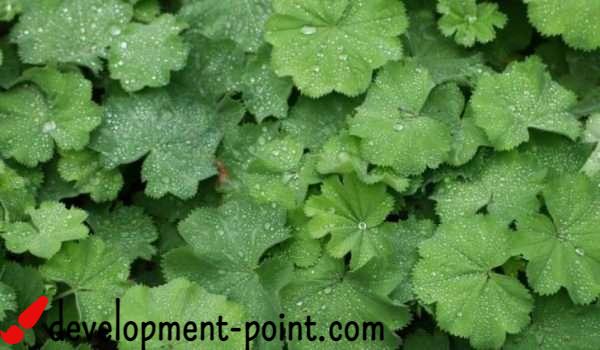Ginkgo herb: its most important benefits and how to use it
Ginkgo herb is a common herb in alternative medicine, especially in Chinese culture since time immemorial. It is green leaves that resemble a fan. It is available as a supplement or as a dried herb for tea. We will learn about the benefits of this herb, how it is used, and is it harmful?
Is ginkgo herb useful?
Some believe that the benefit of the herb is represented in flavonoids, which are compounds that have important and powerful antioxidant properties, in addition to the terpenoids contained in the herb, which may have a role in expanding blood vessels, which helps to enhance and improve blood circulation.
In general, most studies focus on the benefits of the herb extract, which often revolves around its benefits for brain function and blood circulation, but it is worth noting that the available studies have conflicting results, and the information available on the benefits of the herb cannot be certain for all the allegations that are made.
What are the benefits of ginkgo herb?
We will learn about the potential benefits of the herb, what is proven and what is not confirmed, and the benefits mentioned are:
1. Brain health and function
Research regarding the herb’s benefits for brain health, however, is inconclusive! A review of a number of studies showed that using the herb extract, along with traditional medicine, could improve function for people with mild Alzheimer’s disease.
And some other studies have indicated that using the herb can help reduce symptoms associated with dementia, and these results may be due to the herb’s contribution to enhancing blood access to the brain.
However, there is still insufficient evidence to say that ginkgo helps prevent dementia, or even as a treatment for people with mild cognitive impairment.
Even in terms of improving memory, there is little evidence that the herb extract may help improve memory, but modestly in healthy adults, but most of the available studies show that the popular herb does not improve brain functions such as attention or memory.
2. Headache treatment
Some resort to using the herb in traditional Chinese medicine in order to treat both headaches and migraines, but the medical research available in this regard is few in number.
It is believed that the herb’s potential benefit in treating headaches may be due to its anti-inflammatory and oxidative properties, and therefore the herb may help treat the cause of headache caused by excessive stress, and do not forget the herb’s role in expanding blood vessels, and therefore this can have a role in improving symptoms.
* But we emphasize again, the effectiveness of the herb in treating headaches cannot be certain or guaranteed.
3. The benefits of ginkgo for nerves
There is still a need for more studies in this regard, if some studies show that there can be a potential benefit of the herb with regard to neurodegenerative disorders that are related to age, these results cannot be confirmed, but rather with regard to the effectiveness of the extract of this herb, we find They may not help improve the mental function of patients with multiple sclerosis, which is a disease of the central nervous system.
4. Other potential benefits
There are some other therapeutic benefits that some believe can be obtained from the use of the herb, but the evidence regarding these uses is sparse. Overall these potential benefits are:
- Diabetic retinopathy.
- Premenstrual syndrome.
- Anxiety treatment.
- Schizophrenia or vertigo.
- Treatment of glaucoma and peripheral artery disease.
As for the following uses, the herb may not be effective for them:
- Treatment of high blood pressure and tinnitus.
- Multiple sclerosis, stroke or heart attack.
Is ginkgo herb useful for children?
Children should not be given ginkgo of all kinds, whether it is an herb or supplement, without consulting a doctor, and the seeds should not be given to children, as this may cause them to have seizures or death.
How do you use ginkgo herb?
There are many forms of ginkgo, including supplements in the form of pills or capsules, and herbs from which tea can be prepared. The important thing is that you do not eat ginkgo seeds, whether raw or roasted, and also ginkgo leaves that have not been processed, as they may be toxic. As for supplement doses, you must consult a doctor first to determine each case and what it needs and suits.
Ginkgo herb side effects
Most of the use of the ginkgo herb is by eating it as an extract, and despite these extracts, it is mostly considered safe when taken under the supervision of a doctor in moderate quantities, but sometimes this may cause some harm, such as:
- Feeling of headache or dizziness.
- Stomach upset or constipation.
- Heart palpitations.
- allergic reactions.
- Ginkgo can increase the chances of bleeding.
- You must tell the doctor about all the diseases you suffer from before taking the herb or its extract, especially for people with epilepsy or diabetes.
- There can be an interaction between ginkgo and some medications, including blood thinners, so you should tell your doctor about all medications, supplements and herbal medicines that you take.
- Do not forget to tell the doctor about any operation or surgical procedure that you have or will have.
Ginkgo for pregnant women
Pregnant women should be careful not to take ginkgo, except by consulting a doctor, as it may cause early labor, or increase the chances of bleeding. Also, breastfeeding women should not use it without consulting a doctor first.
In the end, we recommend that you consult a doctor in order to treat any medical condition, make the correct diagnosis and prescribe the appropriate treatment. Supplements should not be taken without consulting a doctor, and we wish you continued health and wellness.

